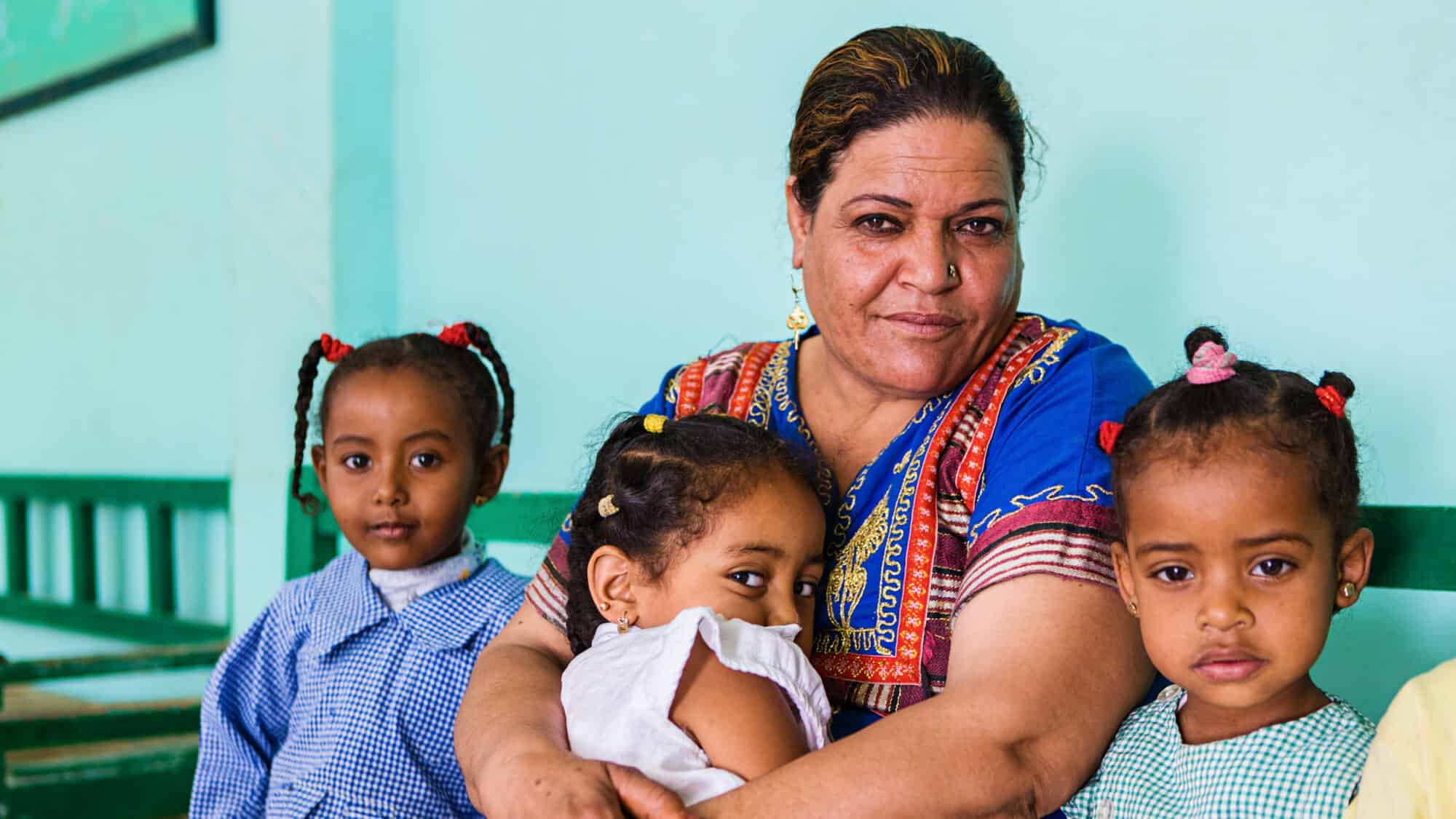You do not need to speak English to see a doctor.
We provide healthcare for refugees and other eligible immigrants. We will look at your total health (like nutrition, injuries and illnesses). We also look for infectious diseases such as parasites, hepatitis B, HIV, syphilis and tuberculosis. If you are an adult refugee, we will screen for symptoms of depression or anxiety and recommend treatment.
Come to one location for all of your services. We have a pharmacy onsite at four of our centers. We can also provide lab and radiology services. We often see family members at the same time. Call (410) 558-4900 to make an appointment, or for general information, fill out this form.
Baltimore Medical System will not share your information with Immigration.
Language Interpreters
In our medical centers, our interpreters speak 13 languages: Amharic, Arabic, Burmese, Chin, French, Hindi, Kirundi/Kinyarwanda, Masalit, Nepali, Somali, Spanish, Swahili and Tigrinya. We provide interpretation for American Sign Language as well. Through a telephone interpreter service, we have access to speakers of more than 200 languages who can answer your questions and be sure you understand what you’re being told about your care. Find an Interpreter.
About the Refugee Health Assessment Program
Our Highlandtown center screens 950 to 1,100 refugees each year. It is the most active refugee screening site in Maryland. We have been handling these tests since 2000. We are trained experts. And we work with many different cultures. In 2015, we screened refugees from 45 countries. Some of those countries include Burma, Nepal, Iraq, Eritrea/Ethiopia and Congo.
Through an agreement with the State of Maryland and the Department of Health and Mental Hygiene (DHMH) we provide health assessments to the following individuals:
- Refugees: People who enter a foreign country to escape danger or persecution. A refugee is any person who is outside the country of such person’s nationality or, in the case of a person having no nationality, is outside the country in which such person last habitually resided, and who is unable or unwilling to return to, and is unable or unwilling to avail himself or herself of the protection of that country because of persecution or a well-founded fear of persecution for reasons of race, religion, nationality, membership of a particular social group, or political opinion.
- Asylees: People who are seeking political asylum, or who have been granted political asylum. Individuals and families seeking or already granted asylum. Asylees are individuals who, on their own, travel to the United States and subsequently apply for/receive a grant of asylum. Asylees do not enter the United States as refugees. They may enter as students, tourists, businessmen, or even in undocumented status. Once in the U.S., or at a land border or port of entry, they apply to the Department of Homeland Security for asylum.
- Special immigrant visa holders: Certain Iraqis and Afghans admitted to the U.S. by the Department of Homeland Security. For their service to the U.S. government in Iraq and Afghanistan, certain Iraqis and Afghans are granted Special Immigrant (SIV) status overseas by the U.S. Department of State and are admitted to the U.S. by the Department of Homeland Security.
- Haitian/Cuban Parolees: A person from Haiti or Cuba who is temporarily allowed to enter the U.S. A parolee is an alien who is allowed into the U.S. even though they appear to be inadmissible to the Border and Customs Patrol Officer. Entry will only be permitted for urgent humanitarian reasons or when the alien’s entry is determined to be for significant public benefit.
- Amerasians: A person who was born in Korea, Vietnam, Laos, Kampuchea (Cambodia), or Thailand between January 1, 1951 and October 21, 1982 and fathered by a U.S. citizen.
- Victims of human trafficking: Children under age 18 forced to perform a sex act; adults pressured by force, fraud, or coercion to perform a sex act. Children or adults forced into unpaid labor. A person recruited, harbored, transported or retained for the purpose of a commercial sex act, in which a commercial sex act is induced by force, fraud, or coercion, or in which the person forced to perform such an act is under the age of 18 years. Also, a person recruited, harbored, transported or retained for labor or services, through the use of force, fraud or coercion for the purpose of subjection to involuntary servitude, peonage, debt bondage or slavery.
- Unaccompanied refugee minors: A child who enters the United States without a parent or guardian. A person under the age of 18 without a parent or legal guardian while entering a country outside of such person’s nationality or, in the case of a person having no nationality, is outside the country in which such person last habitually resided, and who is unable or unwilling to return to, and is unable or unwilling to avail himself or herself of the protection of that country because of persecution or a well-founded fear of persecution for reasons of race, religion, nationality, membership of a particular social group, or political opinion.
These patients are referred to us by local refugee agencies, including International Rescue Committee (IRC), Jewish Community Services (JCS), World Relief (WR) and Lutheran Social Services.
About 90% of refugee patients stay with Baltimore Medical System for routine care and shots. Refugees are eligible to apply for their green card one year after their arrival in the United States (a year after asylum was granted). Upon request, we can provide a copy of the records to be presented to a Civil Surgeon (https://my.uscis.gov/findadoctor).
